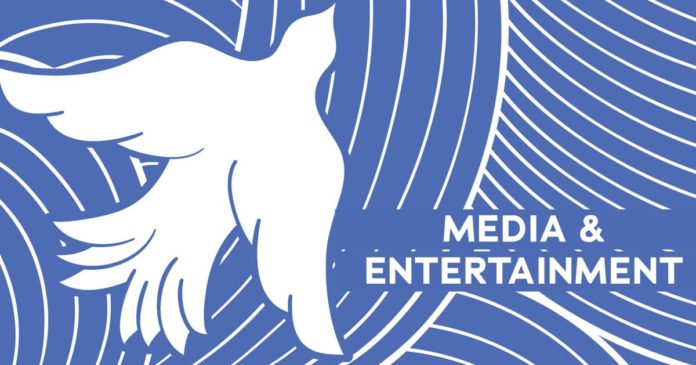William “Bill” Nelson III
Sound engineer, distiller, businessman
In his later years, Nashvillian William “Bill” Nelson III was known for joining his sons Andy and Charlie in reviving the successful Nelson’s Green Brier Distillery, which was founded more than a century-and-a-half ago by his great-great-grandfather. But long before that, Nelson received acclaim for work in a very different industry.
After graduating from the University of the South and teaching English at Montgomery Bell Academy, Nelson studied film at the University of Southern California and began a career as a successful sound engineer. He received Academy Award nominations in the Best Sound category for his audio work on two films — 1986’s Heartbreak Ridge and 1987’s Lethal Weapon. But Nelson ultimately returned with his wife and sons to his hometown, where he founded education production company Little Planet Learning.
After battling serious illness for two years, Nelson died in August of this year at age 76. He leaves behind a large, loving family and a legacy of outstanding work. —D. Patrick Rodgers
Michael L. Walker
Playwright, producer, director, poet, mentor
This year, many in the Nashville arts community lost a father, uncle, brother, friend and mentor in playwright/producer/director/poet Michael L. Walker. A sensitive, thoughtful and soulful human being with a quiet demeanor but plenty to say, Walker was a man on a mission to educate and empower his community through the force of his pen.
As an undergrad at Lane College, Walker was known as “The Dreamer” among his fraternity brothers — and dream he did. Walker created characters fashioned after everyday people he encountered in his hometown of Los Angeles and his second home of Nashville. These characters ranged from preachers to disco dancers, scholars to gamblers, mothers struggling with addiction to activists fighting oppression. They are beautiful, flawed, complicated, resilient, bold and Black.
In 2002, Walker corralled an ensemble of actors he worked with to create Dream 7 Productions, fulfilling his dream of establishing a Black-owned “teaching company” that provided opportunities in theater. Joining Dream 7 was informal. It didn’t require previous experience, a headshot or résumé, and rarely did it require an audition. The only prerequisite was a conversation with Walker and a genuine desire and commitment to the arts. Walker, a teacher, knew the rest could be learned.
For 20 years, the members of Dream 7 have breathed life into Walker’s poetic language with plays like Cultural Millennium, Advisin’ Uncles and Pulpits. Now under the new leadership of Dream 7 founding member Vida Finley and Leonard Ledford III, the train isn’t stopping anytime soon — which is exactly the way Walker designed it. More important than establishing a company, Walker succeeded at building what he referred to as a spiritual family. The relationships and bonds cultivated within Dream 7 have proven to be strong and lifelong. This is a testament to Walker’s vision. It is his legacy. —Shawn Whitsell, director of Destiny Theatre Experience
Shaun Carrigan
Journalist, entrepreneur, deep thinker
Not to say there weren’t a lot of bright minds scattered across the Nashville Banner newsroom in the 1980s, but Shaun Carrigan always seemed just a little smarter than everyone else. Carrigan was the type of guy who talked enthusiastically about taking a typewriter apart — piece by piece, down to every tiny screw — just to see how it was made. And then put it back together again.
This was back in the waning days at 1100 Broadway when only the offices of the Associated Press and United Press International separated the scrappy afternoon Banner newsroom from our rivals across the hall, the bigger and better-financed morning newspaper, The Tennessean. We shared bathrooms and a lunchroom and fought tooth and nail for news stories everywhere else. What a glorious battle. Rinse. Repeat. This was back when smoking was not just allowed but practically encouraged. A hazy blue cloud hung over the city desk as surely as smog over downtown Los Angeles at the time.
There were three tight deadlines to meet back then. The stress and anxiety could get pretty heavy. Sitting smack-dab in the middle of all of this was Carrigan, who through the course of nine years had worked his way up to city editor and who always seemed to be cool, calm and collected while others around him were losing their ever-loving minds. He could have been sitting in a BarcaLounger. Maybe it was his background. He was something of a boy wonder growing up in rural Rushville, Ind., a town of 6,000 or so “that refuses to be defined by outside expectations,” as its current mayor is quoted on the town’s website.
That description fits Shaun Carrigan. He went to college at prestigious Oberlin College in Ohio, majoring in French and creative writing, and soon found himself at the Banner. Years before the ongoing waves of layoffs at the newspaper, he eventually and suddenly was cut loose, along with some other notables, as part of what became known in-house as the Halloween Day Massacre of 1990. This was just weeks after Carrigan’s crackerjack city desk had overseen investigative coverage that helped lead to the conviction and resulting prison term of powerful Nashville Sheriff Fate Thomas, who had used city employees and money to repair his condo and lakefront cabin. Journalism can be a cruel business, in a number of ways.
Carrigan, as it turns out, had an entrepreneurial spirit. And like so many colleagues, he thrived beyond the newsroom. He started a regional magazine (Eagle Communications), an early online publishing source (NewSource) and several more tech-oriented businesses (NetContent, MDP Incentives, Avant Resources), and co-founded Ruth Clinic, an outpatient program focused on opioid recovery for working people.
Beyond his relentless business activity, though, he was most happy when playing the banjo, fly fishing, canoeing, kayaking and, above all, doting on his two daughters. Carrigan died Jan. 8. He was 62. —Pat Embry
Albert Davis
Journalist, friend
Albert Davis — the Nashville Banner’s second Black employee, after the legendary Robert Churchwell Sr. — was a cool guy, and so much more. As one longtime colleague has appropriately noted, Albert, who joined the Banner at age 17 freshly graduated from Cameron High School, controlled timing as well as the temperature of what could be a hotheaded newsroom.
If you were lucky enough to know him and to work with him, though, Albert was a friend you could count on. Working the Banner’s early shift, you knew he doubled the coffee for the first several pots so it was like rocket fuel. Doing dreaded Saturday morning duty at least meant you could anticipate a splendid “soul plate” lunch of fried chicken, mac-and-cheese, greens and hot-water cornbread from the Daughters of Isis, courtesy of his many connections and his wheels.
You just didn’t beat Albert Davis to work, even if you started your shift at 3:30 a.m. He had a different job title but in truth was the early-morning editor. He sorted the wire-service dispatches and monitored the local broadcast stations and police scanner for breaking news. You knew he’d call you at home if something big was happening or was about to happen, and that he’d help a reporter calling in a big story on deadline. Albert was looking after staffers in a literal sense too. The Gulch leading to 1100 Broadway — the former site of both the Banner and The Tennessean — was nothing like the glitzy Gulch of today. Gazing out the big picture windows, he watched us walk safely into the building and would lecture anyone who didn’t use the crosswalk on busy Broadway. “You can sue them if they hit you in the crosswalk,” he’d say.
Albert had an unassuming strength and a well-defined sense of humor. As another colleague aptly recalled, he suffered quiet indignities every day just so we could do our jobs better. Some indignities were loud and crass. Devils once burned a cross in his yard after he moved to a new neighborhood. Those were the times when he would lean into one of his favorite songs, the one made famous by Archie Bell and the Drells. Time to “Tighten Up.” Davis died March 24. He was 74. —Pat Embry
LaQuita James
Voice-over artist, Renaissance woman
LaQuita James’ journey from respected speech-language pathologist to rising voice-over artist may have been unexpected. But her success came as no surprise to those who knew her best. Originally from Decaturville, Tenn., James first moved to the area to attend Middle Tennessee State University, where she received a degree in speech and theater, with a concentration in communication disorders. A certified speech-language pathologist, she later earned a master’s degree at Tennessee State University, and spent many years working with patients in skilled nursing facilities.
After college, James got involved in the local theater scene, performing with companies such as The Larry Keeton Theatre, SistaStyle Productions and KB Productions. After landing a small part in a music video, she found an agent and started working regularly in film and television, with supporting roles in Hap & Leonard, Still the King, Nashville and more. She was also a regular participant in Middle Tennessee’s 54 Film Fest, and won the festival’s Best Supporting Actress award in both 2020 and 2021.
In 2014, a casting director overheard James talking with friends at a party and approached her about doing voice-over work. Always eager to explore new creative opportunities, she recorded and edited her own demo, in which she read a scene from Kathryn Stockett’s bestseller The Help. She booked three major publishers with that demo, and went on to narrate projects for Time, HuffPost and Reuters, along with audiobooks for Audible, Hachette Audio, HarperCollins and other well-known publishers. Notable audiobooks include the Caldecott-winning Thank You, Omu! by Oge Mora and the bestselling The Girlfriends’ Guide to Pregnancy by Vicki Iovine. She also landed a supporting role in the popular audio drama Margaritas & Donuts, which was featured in The New York Times.
James was known for her quick wit and contagious laugh, and friends often referred to her as a true Renaissance woman. She enjoyed playing cello and was always trying out new instruments — from drums to piano to flute. She dabbled in watercolor painting, and was a voracious reader. And she often spoke of her love for animals — especially her beloved cat, Gracie Lou Freebush. James died in her home in Antioch on June 17. —Amy Stumpfl
Jason Reynolds
Reporter, children’s author
Jason Reynolds, who had been a shoe-leather reporter for local newspapers across Middle Tennessee for two decades, had finally landed an editor job, set to take the reins at the Shelbyville Times-Gazette in March. And then he was diagnosed with COVID-19. He fought double pneumonia in a Murfreesboro hospital for nearly a week before dying March 15.
Reynolds had worked for the Chattanooga Times-Free Press, the Murfreesboro Post and The Tennessee Star, developing a reputation among newsmakers and colleagues as a hard worker, dedicated to accuracy, balance and the First Amendment. He loved taking on new projects and launched a blog and podcast called Followers of the Cross featuring interviews with Christian authors and musicians. He raised chickens on his farm and wrote a series of children’s books about a Chattanooga hot dog vendor in the late 21st century named Bob who battled aliens and bounty hunters.
And he believed in local reporting by local reporters. Reynolds planned to beef up the Shelbyville paper with more of both, believing that community journalism still has a place in a world where seemingly every story is nationalized and what few local papers remain in places like Shelbyville rely more and more on wire stories. Jason Reynolds was 46. —J.R. Lind

Norma Ann Morris
Norma Ann Morris
Country-music publicist, author and photographer
Four decades ago, Norma Ann Morris had an award-winning career writing and editing college textbooks. Then, a few years after her husband Edward Morris began covering country music for Billboard in 1981, she launched Morris Public Relations, a standout PR firm whose client roster has included Merle Haggard, Waylon Jennings, Ralph Stanley and Exile among many others. Along the way, Norma Morris published photos with outlets like People and Billboard. The firm, currently headed by the couple’s daughter Erin Morris Huttlinger, still represents clients like Vince Gill and Teea Goans.
Any of these could be considered major accomplishments to aspire to. The phenomenal strength of the Morris’ relationship over 61 years of marriage is likewise inspirational. As Edward Morris noted in an essay for Salon in 2014, they voluntarily lived apart in different areas of Nashville for several decades, preventing their divergent personalities from getting in the way of being in love. “Given our penchant for a no-strings existence, why do we even bother staying married?” he wrote. “The easy answer is that we’ve never stopped loving each other — and passionately so.” After Norma was diagnosed with Alzheimer’s disease and Parkinson’s disease in 2015, Edward became her full-time caregiver, a part of their story detailed in Stardust: An Alzheimer’s Love Story, published in early 2021. Norma Ann Morris died Aug. 20 at her home in Kingston Springs at age 82, leaving generations of family and friends. —Stephen Trageser

Phil Valentine
Phil Valentine
Conservative talk-radio host
It would be easy to treat Phil Valentine as another data point, another conservative talk-radio host who died from COVID after spending weeks being skeptical of — even mocking — the vaccines and suggesting listeners find doctors who would write ivermectin prescriptions.
Valentine was skeptical. Valentine did mock the vaccination campaign. Valentine did suggest people consider “alternative” treatments. And Valentine died from COVID after a weeks-long struggle in the hospital during which he relied on a ventilator and, later, an ECMO machine to breathe. Surely, Valentine himself would prefer to be remembered as one of the most important talk-radio hosts of all time, as Talkers Magazine declared him. He’d likely want to be known as the man who encouraged all the horn-honking protests against the effort to implement a state income tax in the late 1990s. He might like to be remembered for his documentary rebuttal to Al Gore’s An Inconvenient Truth called An Inconsistent Truth. Heck, he’d probably rather be remembered for his spy novels.
But as it is, he’ll be one of several conservative radio men who, like hundreds of thousands of other Americans, died from COVID-19. According to his brother Mark, who became the family spokesman during Phil’s hospitalization, dealing with the realities of the disease caused a change of heart.
“He wishes he could do it over,” Mark told WPLN. “His regret [was] ‘I made the decision [not to get vaccinated] based on my situation, but I know now that a lot of people didn’t get the vaccine because I didn’t get the vaccine. And that is what I would like to correct.’ ” Phil Valentine was 61. —J.R. Lind

Joseph “Jocephus” Hudson
Joseph “Jocephus” Hudson
Wrestler, musician, actor, teacher
When I first met Joseph Hudson, he drove a red Jeep with one blue door. It gave him an outsized presence and made it easy to spot him around town (often at the public library, where he then worked, or at Springwater). When he died unexpectedly at age 43 of an undiagnosed medical condition, he drove a car so neutral I can’t remember its color. White? Gray? Beige? But in the 13 years since I’d met him, he had become so big — physically at 6-foot-3 and 279 pounds, but also with a large persona — that he was easier to spot than that Jeep.
Best known as wrestlers Jocephus and The Question Mark for the National Wrestling Alliance, he was Nashville-famous earlier in his career thanks to wrestling at the Stadium Inn and the fairgrounds as Jocephus the Shelby Street Brawler. Now, it’s not uncommon to see folks wearing T-shirts sporting his face, and they’ll talk about his high-profile antics, such as leading a Record Store Day crowd at The Basement in the hokey-pokey. In 2019 he lost a wrestling match to David Arquette, with Arquette shaving Joseph’s head bald on camera. While I wondered about a Samson scenario, even though he was 41 at the time, his brunette curls grew back just as thick and long, giving him strength for a career comeback. His performance of Voltaire’s Candide with NWA’s Billy Corgan provided a peek at his voracious appetite for reading.
As an actor he appeared in a number of music videos, including Lambchop’s “Gone Tomorrow,” as well as on Billy Ray Cyrus’ CMT show Still the King and onstage in a number of local productions at the Darkhorse Theater. As a musician, he led the Xists, a synth band with his brother and his ex-wife, and played in a trio called Jocephus and the Nihilists with Jawws’ Hunter and Eli Tidwell. Wrestling fans particularly appreciated that Joseph never broke character even before getting in the ring. But I loved how he never confused real life for his act. Out of costume was when Joseph was a devoted caregiver, whether you were his grandfather, son or friend. When he listened to you, there was no one else in the world. You had his complete attention. At a May celebration of life at SAE Nashville — where he was a former student and then a favorite teacher — each speaker said a version of, “Joseph was my best friend.” It became a welcome bit of comic relief — “I thought he was my best friend.”
A native Nashvillian both by birth — he lived in Donelson and attended Donelson Christian Academy — but also by his essence, Joseph was that breed of Nashvillian: a multihyphenate who believes in creativity for creativity’s sake. —Margaret Littman

Commemorating some of the irreplaceable Nashville figures we lost this year
Credit: Source link






























